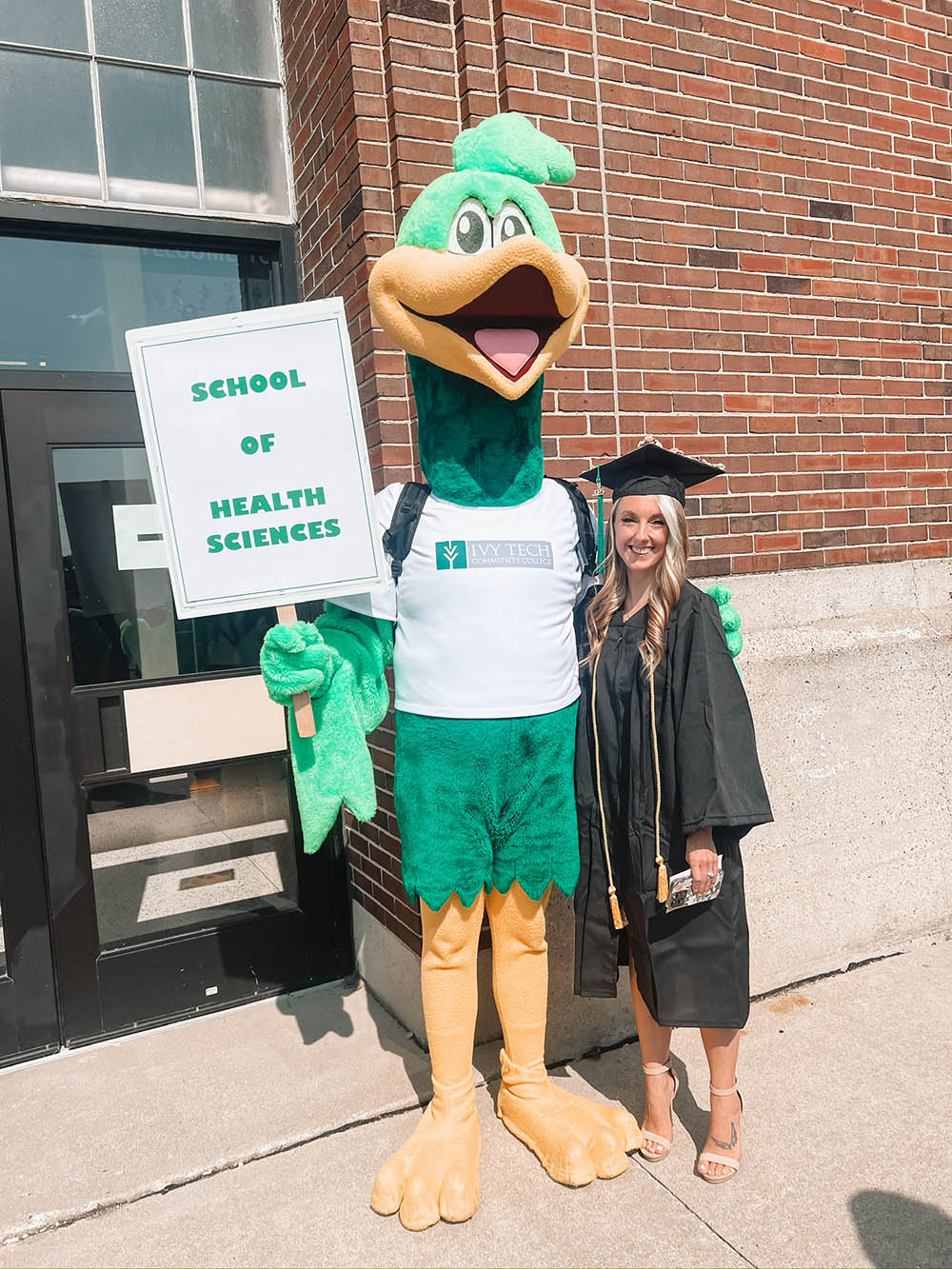Going to school takes hard work, and going back to school takes courage – but being a non-traditional student who balances work, family and an educational program after spending years in the working world takes resolve.
 Sierra O’Donnell understands that, and can personally speak to the challenges and benefits of going back to school as an adult. She started taking classes at Ivy Tech in January of 2021, and graduated with an Associate of Applied Science in Medical Assisting degree in May of 2023. The program is capped off with an eight-week externship that she completed in July, becoming a fully certified medical assistant.
Sierra O’Donnell understands that, and can personally speak to the challenges and benefits of going back to school as an adult. She started taking classes at Ivy Tech in January of 2021, and graduated with an Associate of Applied Science in Medical Assisting degree in May of 2023. The program is capped off with an eight-week externship that she completed in July, becoming a fully certified medical assistant.
“Personally I had a really good experience with Ivy Tech,” says O’Donnell. “I had been out of school for a decade when I went back to school, so it was a little nerve racking. They made it very easy to apply on the website.”
Originally she went to school to pursue the sonography program, but quickly realized that the work wasn’t the kind that she would like to do full time. Her desire to work with people, particularly in a way that helped them improve their lives, led her to ultimately choose the Medical Assisting program instead.
 “When I first started I was doing two classes per semester because I was still doing three part-time jobs,” says O’Donnell. “I have a husband and two girls who are 9 and 11. It was a little tricky because it was hard to balance being a wife, a mom and a full-time college student. After the first year I quit working and started doing school full time. I was doing four classes per semester.”
“When I first started I was doing two classes per semester because I was still doing three part-time jobs,” says O’Donnell. “I have a husband and two girls who are 9 and 11. It was a little tricky because it was hard to balance being a wife, a mom and a full-time college student. After the first year I quit working and started doing school full time. I was doing four classes per semester.”
Ivy Tech has many of their classes set up to allow nontraditional students like O’Donnell to complete their work remotely, through Zoom calls and online assignments. “As long as you have good discipline and balance your time, it’s very doable to be a college student and also have a work and home life,” says O’Donnell.
She currently works in an OBGYN office at Community Hospital North in Indianapolis and feels like the work is ideal for her. She prefers the focused nature of the work, working with women and their needs before and after pregnancy. “Depending on where you are medical assisting, you will definitely do different things,” she says. “The baseline of it is that you learn to do vitals like taking temperatures, taking blood pressures, weighing people correctly, things of that nature.”
The job is not just about these technical skills, however. Medical assistants are often the very first people patients interact with when they go to a doctor’s office, and their attitude can have a very dramatic effect on the overall experience of the patient.
“A lot of people have white-coat syndrome, where simply going to the doctor is really nerve racking,” O’Donnell says. “I feel like we kind of set the tone. I have had patients be really anxious, but after they talk with me, they say that they feel instant relief and like they will be treated correctly.”




